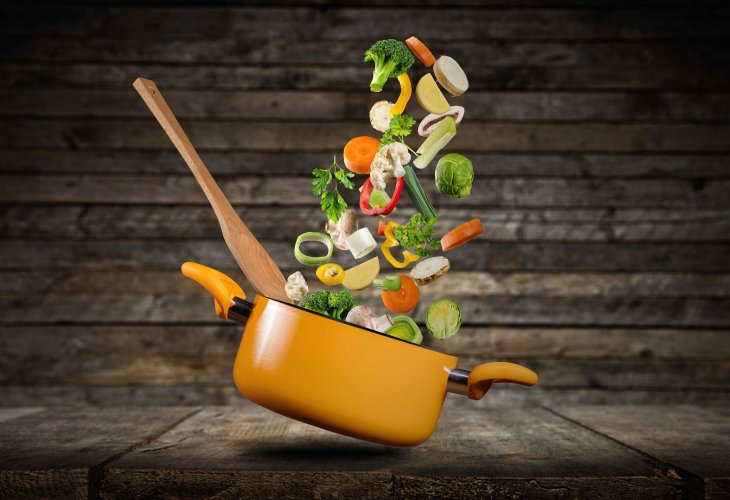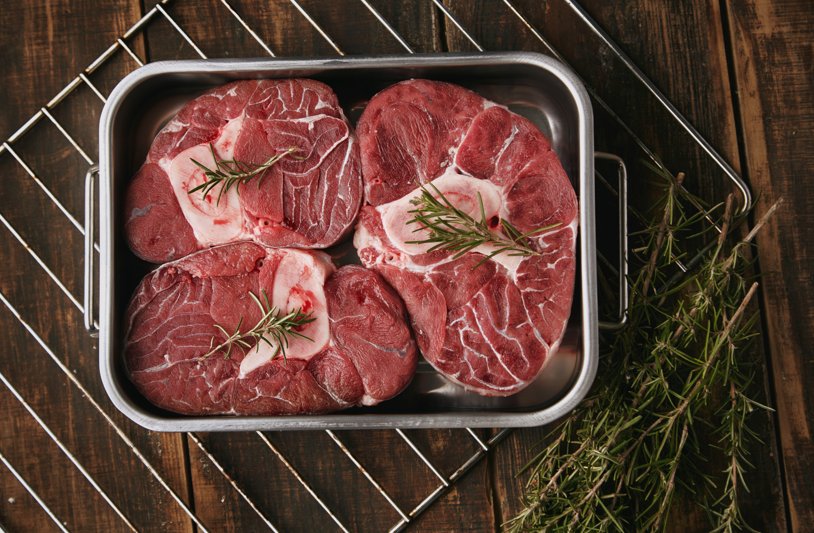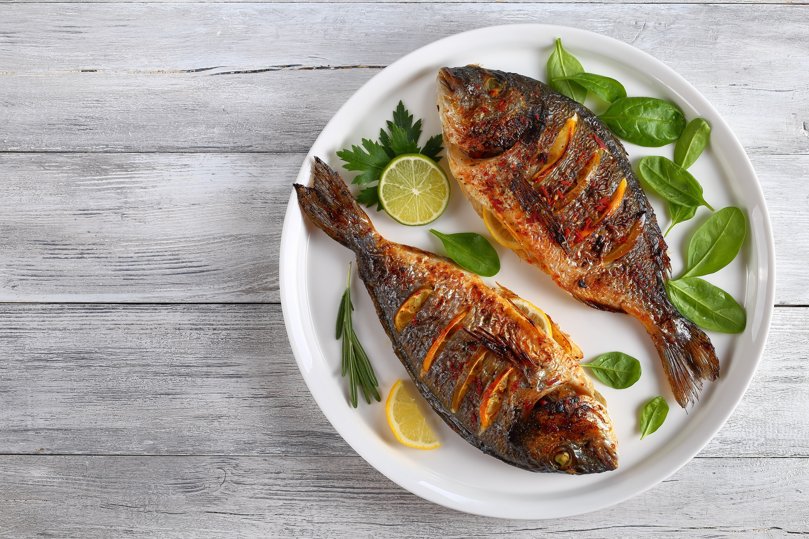Beginners Guide
Eating According to Jewish Law- A Concise Guide to Keeping Kosher
Is keeping kosher only about separating meat and dairy? Everything you need to know to start your journey in the world of kashrut.
 (Photo: shutterstock)
(Photo: shutterstock)Kosher eating is a central aspect of the Jewish people’s covenant with Hashem and forms an important part of the life of a believer. On the directive "And you shall be holy people unto me" (Exodus 22:30), the Ramban explains: "I desire that you be holy people so that you are worthy to cling to me, for I am holy; therefore, do not defile your souls by eating detestable things."
One of the fundamental ways the Jewish people are distinct from other nations is in the food they consume. Consuming non-kosher food creates a spiritual blockage around a person’s soul, making it more difficult to feel connected to anything sacred. Non-kosher food defiles the human soul, creating a spiritual barrier around it. Hashem commands us to protect our souls from that spiritual harm by observing the kashrut of food.
Kosher Meat
Jews are permitted to eat only kosher animals that have been slaughtered according to halacha. The slaughter must be performed by a professional shochet who fears Heaven, and there are many details involved. An animal not slaughtered properly is referred to as nevelah; an animal suffering from a significant injury or serious illness is a treifah, and both are forbidden to eat. Even in a kosher animal properly slaughtered, not all parts are permissible to eat, such as a certain fat called chelev and another part known as "gid hanasheh (sciatic nerve)".
It is forbidden to eat the blood of animals and birds. After slaughter, the meat needs to be kashered, meaning that the absorbed blood must be extracted (through soaking in water and salting), usually done at the slaughterhouse. The liver and other internal organs must be first roasted to extract absorbed blood, and only then can they be cooked.
Glatt Meat – One of the tests to establish an animal's kashrut is done after slaughter by examining the lungs: if a perforation is found, it indicates treifah, and thus the meat isn’t kosher. However, sometimes thin threads ("sirchot") are found on which a perforation might lie underneath, but sometimes there isn't anything requiring clarification. Glatt ("smooth" in Yiddish) meat has no issue at all, and is entirely free of sirchot.
 (Photo: shutterstock)
(Photo: shutterstock)According to the Sephardi custom, there is no way to permit a sirchah where it causes treifah; thus, they must not eat from an animal found with sirchot in its lung. In contrast, Ashkenazi custom allows removing the sirchah by crushing, smoothing, and peeling, and if it is verified that there’s no perforation underneath, the animal is kosher.
The insistence on glatt meat is one of the central points noted by Maran Rabbi Ovadia Yosef Z"L, who frequently warned Sephardim and anyone with fear of Hashem in their heart to avoid purchasing non-glatt meat, as according to the majority of poskim, and the Shulchan Aruch’s author, it constitutes a Torah prohibition, involving eating treifah. It is worth noting that Ashkenazim who were previously lenient, did so due to significant constraints, and thus the Rema writes that it is a very great leniency. Practically speaking, nowadays when glatt meat is plentiful, it is very proper for Ashkenazim to be stringent in this regard, by buying only "glatt" that was checked as required by halacha. It's essential to mention that current stringent certifications ensure the standard of glatt, which allows consumption of meat with good supervision without any concerns.
Meat and Dairy
The Torah forbids eating and cooking meat and dairy together. The sages prohibited eating meat and dairy in the same meal and likewise using the same utensils for their preparation. Therefore, in a kosher kitchen, there should be two separate sets of pots, pans, dishes, and cutlery – one for meat and another for dairy.
After eating meat dishes, it is customary to wait six hours before consuming dairy products. After consuming dairy, one can eat meat without waiting, provided they wash their hands, drink a beverage, and eat some solid parve food (excluding dates, leafy vegetables, thin flour, as they stick to the gums) to cleanse their mouth from dairy residues before eating meat.
Chalav Yisrael
A fundamental rule in kosher laws states: "That which emerges from a non-kosher animal is non-kosher, and that which emerges from a kosher animal is kosher" (Tractate Bekhorot). Therefore, only milk and eggs from kosher and pure animals are permissible. A rabbinic mitzvah requires supervision during milking to ensure that the milk is indeed from kosher animals. This issue is less common in Israel, where most dairy farms are managed by Jews and overseen by various kosher authorities. Abroad, where most are owned by non-Jews, the issue is more prevalent. Some halachic authorities permit consuming non-Jewish dairy products abroad based on local health departments' supervision, which strictly forbids mixing non-kosher milk, and if found, threats of fines and dairy shutdowns prevail. Nevertheless, many consume only products milked by or under the supervision of a Jew. In Israel, this mainly impacts imported dairy products or those containing imported milk powders. Kosher authorities abroad explicitly label products made from supervised milk with "Chalav Yisrael." Conversely, in Israel, products made from imported milk typically indicate "Chalav Nochri" or a similar note.
Fish
The signs of purity in fish are fins and scales. Kosher fish include tuna, salmon, carp, tilapia, Nile perch, mackerel, and cod.
Fish are not eaten with meat due to health risks related to eating these foods together. Additionally, Sephardim avoid mixing fish and milk for this reason. However, those accustomed to eating fish with butter can continue their custom.
 (Photo: shutterstock)
(Photo: shutterstock)Insects-Free Foods
The Torah forbids eating creeping creatures such as worms, insects, and various flying insects. Thus, the book "Kitzur Shulchan Aruch" (Section 46) states: "The Torah greatly warned about vermin… therefore, a person must be extremely cautious to avoid stumbling upon them." Before using products at risk of insects, such as flour, rice, and legumes, they should be carefully checked and sifted, or these products should be purchased under a supervised certification stating that they are "free of worms and insects". Foods with a high likelihood of insects, such as leafy vegetables (lettuce, parsley, etc.), strawberries, corn, cauliflower, broccoli, figs, and dried fruits, require special inspection and cleaning according to halachic standards, and if not thoroughly checked, must not be consumed. Nowadays, specially marked agricultural produce is available as "grown/produced to prevent worms and insects" and should be handled as per the package instructions.
Bishul Akum
To prevent assimilation, our sages forbade eating foods cooked by non-Jews. Thus, a crucial point in food kosher certification is that the food was cooked by a Jew, or otherwise, the food becomes forbidden. Similarly, non-Jewish bread is forbidden unless a Jew took part in some baking process, which renders it permissible.
Produce
All plants are kosher without exception. However, for fruits and vegetables grown in the Land of Israel, there are commandments dependent on the land, impacting kashrut. Here are a few:
A. Orlah. Fruits grown during the first three years from tree planting are called "Orlah" and are not kosher. This rule applies to trees both in Israel and abroad. Hence, one who plants a tree in their yard cannot eat its fruits before three years have passed, and a specific process must be undertaken to render the fourth-year fruit edible.
B. Tithes and Offerings. Tithes and offerings refer to the various types of tithes that need separating from agricultural produce in Israel, which used to be given in the Temple era to priests and Levites. Nowadays, priests cannot eat these due to impurity, and they are therefore separated and burned or disposed of. Fruits and vegetables not tithed are called "Tevel", and are inedible. When buying fruits, vegetables, and grains grown in Israel (and products containing them), it is important to ensure that they were tithed.
C. Challah Separation. When preparing dough for baking, a portion is set aside. In the past it was given to priests, but today, a piece of the dough is set aside, wrapped, and burned or disposed of. Challah separation is applicable only if the dough contains a specified amount: at least 1.2 kg or 1.66 kg flour, according to different halachic opinions.
D. Shmita. Every seventh year is Shmita, wherein all lands become public domain. During this year, the land isn’t cultivated, and the seventh year's produce can't be sold. It is important to ensure that fruits and vegetables purchased during or shortly after Shmita possess a kosher certification indicating that agricultural produce wasn’t unlawfully grown.

